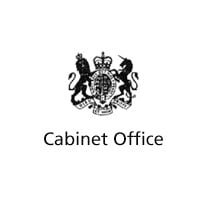NHS “on board” with PSN programme
- 28 February 2012

The NHS is “fully on board” with the Public Services Network programme, despite having serious concerns about it just one year ago.
Chris Wilber, head of NHS infrastructure at the NHS Technology Office, spoke at a Public Services Network conference hosted by BT in London on Monday.
“A year ago we were struggling to work out how to work with PSN effectively,” he said. “Now, we’re well embedded, part of the PSN family. Our concerns are taken seriously and we think we can make it work.”
The PSN is a key foundation of the Cabinet Office’s Government ICT strategy. The aim is to create a “network of networks” through which a range of authorities and agencies that deliver public services can share communications infrastructure and information, leading to reduced costs and increased efficiencies.
Both suppliers and organisations using PSN must be accredited as PSN-compliant to ensure “seamless interconnectivity.”
Wilber said the aim was to have N3 PSN Service Provider or Distribution Network Service Provider accredited in May or June.
“We have to strike a reasonable balance between slotting N3 into the PSN framework and concentrating on what comes after N3. We’re starting to plan for N4 going forward,” he said.
He said the NHS could use the PSN procurement frameworks to look at purchasing N4. However, he admitted this would not be a simple task, as N3 is very complex, with a large number of customers and suppliers, working against a backdrop of a changing health economy.
However, he said the infrastructure team now had the framework and the relationship with the PSN team to allow it to happen.
Wilber said that in many ways, N3 was an example of what the PSN programme was trying to achieve – a secure network linking a multitude of different organisations with a “certain amount of devolved authority.”
N3 was a national programme with 50,000 connections, he pointed out, but it also has 70 Community of Interest Networks that were developed locally. He said the two projects had a lot of overlap and were therefore a good match.
“We think we can make PSN work in the NHS,” Wilber added. “Much work needs to be done on a convergence plan, but good progress has been made.”
The results of a BT-commissioned survey of public servants’ attitudes towards the PSN were also released on Monday.
The online study, which had 1,300 responses, found that those working in the health sector were significantly less likely to see PSN as either significant or very significant to their organisation’s ICT and business strategy.
While 46% and 47% of central government and local government responders respectively said this was the case, just one quarter of those working in health and defence said the same.
The Cabinet Office has also issued strategies for a government cloud (G-Cloud), end-user-devices, ICT capability and ‘greening’ government IT to support the overall Government ICT Strategy.



